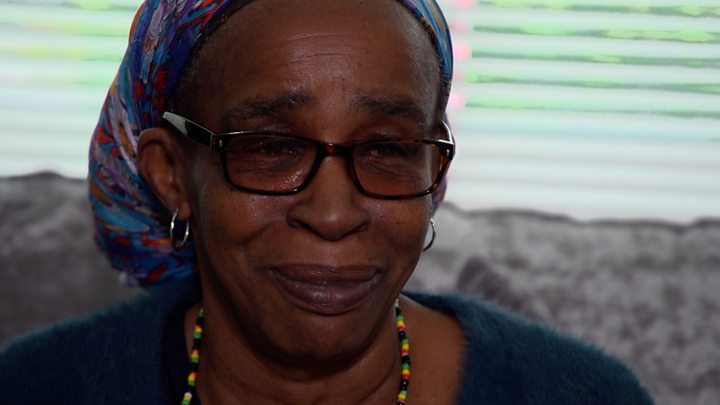 Image copyright
Getty Images
Image copyright
Getty Images
The Home Secretary Sajid Javid has apologised to another 49 victims of the Windrush scandal.
People who were sanctioned, for example losing their right to work, and others who were illegally detained under immigration powers after they had completed their prison sentences, were among those to be sent apology letters.
A total of 67 people have now received personal apologies from Mr Javid.
He said he was "committed to right the wrongs of successive governments".
Thousands of people were wrongly targeted by the "hostile environment" strategy for illegal immigration in the Windrush scandal.
Many of those affected were people from Caribbean countries who arrived in the UK after World War Two, between 1948 and 1971.
Mr Javid said the experiences of some of the Windrush generation - which involved wrongful detentions and deportations - had been "completely unacceptable".
The government's Commonwealth Citizen's Taskforce would be reaching out to individuals they were not already in contact with to provide any assistance required to document their status and to explain the compensation scheme, the Home Office said.
An estimated 500,000 people now living in the UK have been called the Windrush generation, in reference to a ship which brought workers to the UK in 1948.
They were granted indefinite leave to remain in 1971 but thousands were children travelling on their parents' passports, without their own documents.
Changes to immigration law in 2012 meant those without documents were asked for evidence to continue working, access services or even to remain in the UK.
Some were held in detention or removed, despite living in the country for decades.
A review by a Home Office taskforce of 11,800 Caribbean cases in 2018 identified 164 who were deported or detained who might have been resident in the UK before 1973.

The Commonwealth Citizen Taskforce, which is open to all nationalities, was established by the Home Office to "right the wrongs experienced by the Windrush generation".
A compensation scheme for those affected opened in April and the government said there was "no cap" on the amount victims could receive.
More than 6,400 individuals have been given documentation confirming their status so far, including over 4,200 individuals who have successfully applied to become British nationals, the Home Office said.